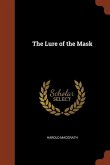"More Fables" by George Ade continues the author's tradition of witty, satirical storytelling, offering readers a delightful exploration of human nature and societal norms. Through a series of short, sharp narratives, Ade brings to life a variety of characters and scenarios, each illustrating the quirks, follies, and timeless truths of everyday life. Fable Themes 1. The Self-Made Man In "The Self-Made Man," Ade chronicles the rise of an ambitious individual who prides himself on his independence and hard work. However, his journey to success is marred by his disregard for those who helped him along the way. Ade's story humorously critiques the myth of the self-made man and highlights the importance of humility and gratitude. 2. The Busybody "The Busybody" follows a character who takes an excessive interest in the lives of others, offering unsolicited advice and meddling in their affairs. Ade's portrayal of the busybody is both humorous and cautionary, revealing the social pitfalls of nosiness and the value of minding one's own business. 3. The Lavish Spender In "The Lavish Spender," a man spends extravagantly to maintain an image of wealth and status, only to find himself facing financial ruin. Ade uses this fable to satirize consumerism and the often hollow pursuit of material success, emphasizing the importance of living within one's means. 4. The Idealist "The Idealist" features a character who dreams of creating a utopian society. Through a series of misadventures, Ade humorously illustrates the clash between idealism and reality, ultimately suggesting that while lofty goals are admirable, practicality and compromise are necessary for success. 5. The Proud Parent In "The Proud Parent," a mother or father boasts incessantly about their child's achievements, often exaggerating the truth. Ade's fable gently mocks the phenomenon of parental pride, highlighting the thin line between supportive encouragement and unrealistic expectations. 6. The Hypochondriac "The Hypochondriac" centers on an individual who constantly worries about their health, often imagining ailments that do not exist. Ade's portrayal of the hypochondriac is both funny and insightful, shedding light on the human tendency to worry and the psychological impact of anxiety on well-being. 7. The Social Reformer In "The Social Reformer," a character passionately advocates for societal changes but fails to address their own flaws and inconsistencies. Ade's fable serves as a humorous reminder of the importance of self-awareness and the challenges of effecting meaningful change. 8. The Cynic "The Cynic" tells the story of a person who views the world through a lens of skepticism and distrust. Ade's narrative explores the cynic's lonely existence and the barriers this attitude creates to forming genuine connections with others, ultimately suggesting that a balanced outlook is healthier and more fulfilling. 9. The Fashion Victim In "The Fashion Victim," a character is obsessed with following the latest trends, often to absurd and impractical lengths. Ade's fable satirizes the fleeting nature of fashion and the folly of valuing style over substance, encouraging readers to find their own sense of identity and confidence. 10. The Eternal Optimist "The Eternal Optimist" features a character who remains relentlessly positive, regardless of the challenges they face. While Ade humorously depicts the optimist's naïveté, he also acknowledges the resilience and hope that such an attitude can bring, suggesting a balance between optimism and realism.







